
Blimey, this was a while ago! Me, reading one of those paper things we used to get. Keeping my brain healthy?
I’m a lazy sort, and I like to take a couple of days off every week doing nothing in particular: mostly reading.
But not long ago I realized that those days off weren’t quite off. I was spending a lot of time doing the brain work that making a garden requires. I would find myself worrying about a part of the garden which was not quite working and then begin to research a plant which might give it a lift at the right time of year. Searching through books, or online. Or I would wonder why something in the garden was not doing well and begin to try to find out. I might find myself researching insects which are chomping at some foliage. Or wonder what that butterfly I just caught sight of was. All this can take me down many fascinating paths, whereby I learn a lot more about gardening. It might not be quite what I intended on my ‘day off’.
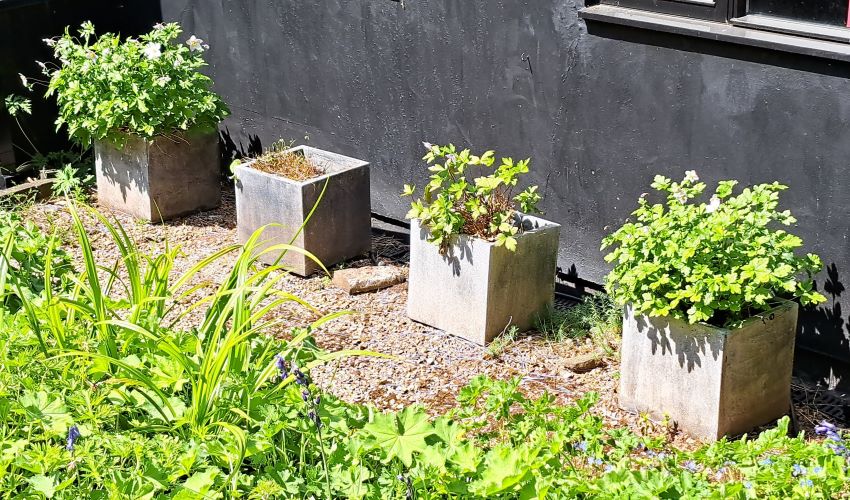
Something badly wrong here. Needs some thought and probably some research: what happened?!
Then I recently discovered that gardening is good for your brain.
Ah! And no, this is not another thing about how good exercise is for you. Nor that gardening benefits your mental elf. It appears that research over nearly a century by the University of Edinburgh, published in Science Direct, found that people who spent time gardening have better brain function in later life. And that this benefit persists after the researchers adjusted “for education, occupational social class, health, and importantly, overall physical activity.”
Children born in and nearby Edinburgh in 1921 sat an intelligence test when aged eleven to measure their reasoning and arithmetic ability. Hundreds of them were then traced in later life and took exactly the same test when 79.They also gave details of their lifestyles and then completed frequent assessments of their brain health up to the age of 90.
The 280 gardeners retained their brain power, but 187 who rarely or never gardened scored worse than they had as children.
Sad to say, this discovery then gets a lot of nonsense offered as explanation. You may be able to read some of this nonsense here.
“Engaging in gardening projects, learning about plants and general garden upkeep involves complex cognitive processes such as memory and executive function,” says Dr Corley. Well, that is fair enough, and echoes my activity on my days off.
But then you get stuff like “pulling up weeds boosts brain health, because building up muscles dampens down inflammation”. And let’s face it, not all of us bother to pull up weeds. I tend to pull only if it will require no muscle effort to speak of.
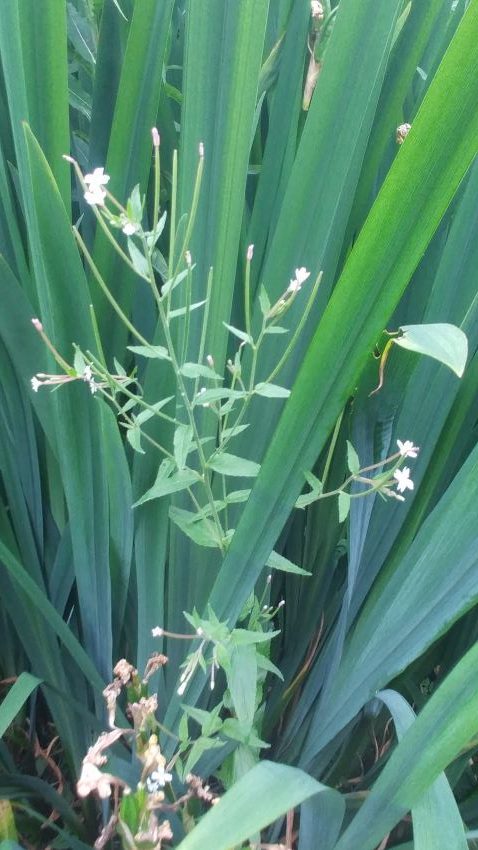
I can just about manage one of these.
And I would put a lot of money on a bet that no-one counted how many weeds those gardeners in the research project pulled. The truth has to be that no-one really knows what it might be about gardening that is good for your brain, because there is no way that that was part of the research.
Well, my guess (only a guess) is the sheer amount of problem solving:
Problem solving in relation to design; plants; weather; checking out silly stories in the media about loving slugs; indeed deciding whether to love your pests or slaughter them; trying to find out where to get the plants you’d like; trying to work out how to afford them, what to do about the awful weather…
I have been unable to access the original research report, which is behind a paywall. But it has to be impossible to prove what aspect of gardening is good for the brain without experiments which defy credibility.
So garden however you like and glow in the knowledge that somehow it’s doing you good.
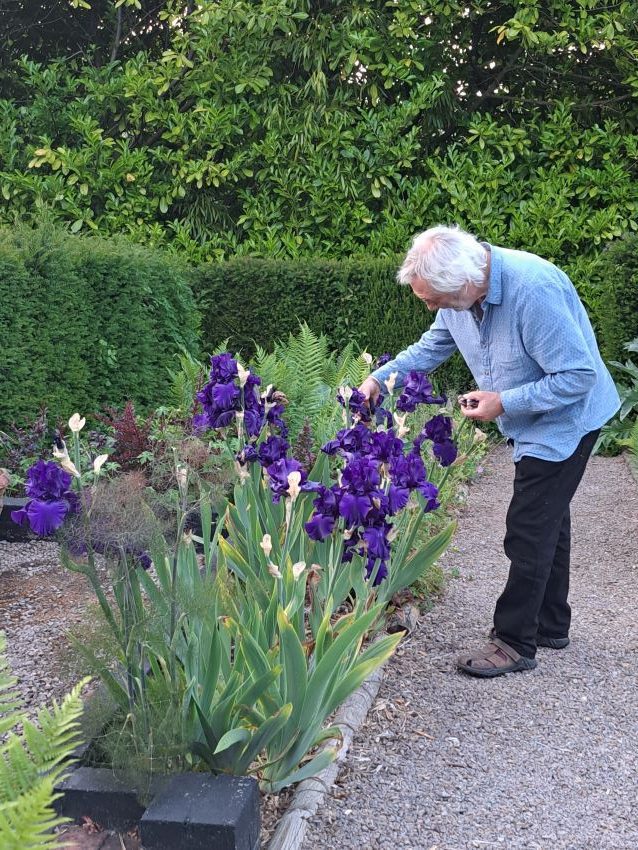
Definitely doing his brain good?
Please note – the website is currently not allowing me to reply to comments. I will when I can.



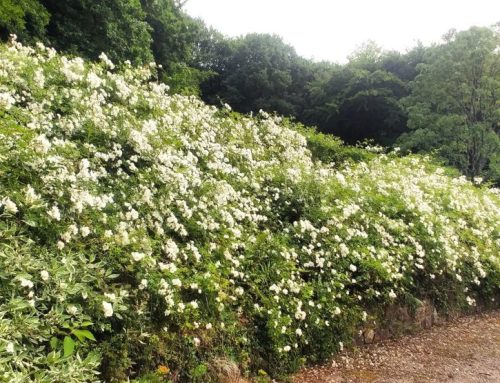
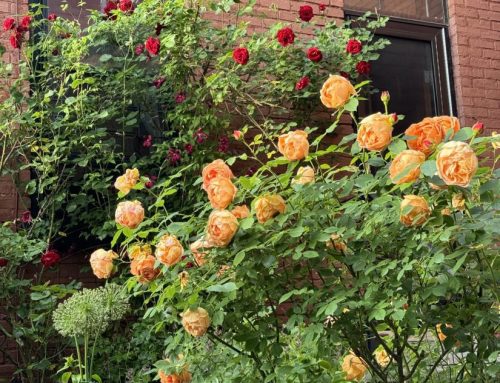
The premier intellectual activity?
Yes!
Bravo, Anne! My intellectual, writer husband, God rest his soul, would have loved to know that all my research, charts, notes, excursions, projects, memorizing Latin, plant origins, insects and their habits and practicing coercion techniques to get things done after figuring out the hows and whys, all this, and more, was actually giving me brain power.
That’s gardening!
Dan Quayle, one of our goofiest, and oft-quoted, U.S. vice-presidents whose brain cells weren’t always firing properly, once said: “What a waste it is to lose one’s mind. Or not to have a mind is being very wasteful. How true that is.”
I don’t know if he gardened, but I suspect not.
Sounds very unlikely.
Love this! And so true. Reminds me of when I once asked the electrician I was dating what part of him was most tired at the end of the workday, expecting a muscle group, and he answered “My brain” because he spent most of the time solving problems. I was both surprised by the answer and embarrassed to have asked.
Makes sense.
Well, I am example that pulling weeds doesn’t help your brain. Cause I am a compulsive weeder and the brain ain’t what it use to be.
We need the research on that…….
I am gardening obsessed. I am fascinated by plant structure ,plant beauty, plant history, plant lore, garden aesthetics , … you name it. I think that gardening is probably good for the brain because the garden and thus the gardener are never finished. I often think of the quotes of Thomas Jefferson “ No occupation is so delightful to me as the culture of the earth, and no culture comparable to that of the garden.” But the best quote is “but tho’ an old man, I am but a young gardener.”
Strangely though, this research must suggest that the most casual of gardeners must still be benefiting?
I love all the speculation going on here about why gardens help us. I suspect all the answers are at least partially true.
My theory is that human beings are meant to be outside and around plants the majority of our days. We need vitamin D physically, and we need the presence of nature. Most modern humans only go outdoors briefly, as a means to get to a different indoor space, and even that meager “outdoor time” is largely spent in parking lots and other barren landscapes. Gardening is one of the few hobbies where the participant must be outdoors most every day, engaging with the natural world.
I wonder if the study would show a difference among the non-gardeners who exercised indoors vs. outdoors. I think they’d see that the nature walkers/hikers or even people who run outdoors in parks and other green spaces do better than gym rats.
Over a hundred years (time of the research, I think) many people would have been working outdoors without being gardeners. More mysterious perhaps than just the ooutdoors?